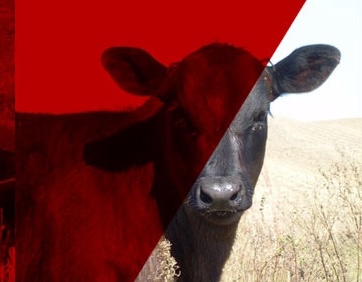Good moisture has boosted growth of summer planted turnips and many are ready to graze. Turnips may be the best grazing option available for late fall and winter. But, like everything else, they can cause problems.
Turnip leaves can cause
- a blood mineral disease called hemolytic anemia,
- a brain disorder called polioencephalomalacia that is characterized by twitching and incoordination,
- pulmonary emphysema, which is a breathing disorder,
- and even bloat.
These problems generally occur during the first couple weeks of grazing. Turnips also affect function of the thyroid gland and, thus, are goiter-genic.
Now this may all sound scary, but most problems are rare and are reduced or eliminated with careful management.
- To begin, don't shift cattle onto turnips suddenly.
- Adjust cattle by feeding high quality hay or pasture for a couple weeks before grazing turnips to prepare their rumen for the high energy and protein in turnips.
- Give them just a few hours access to turnips at the start.
- Make sure cattle have access to a dry roughage like corn stalks or a palatable hay. This also helps reduce diarrhea, which is common with turnips.
- Strip grazing that forces cattle to eat both roots and tops reduces problems and increases carrying capacity.
- And finally, always provide an iodized salt-trace mineral mix. No protein or energy supplementation is needed.
Many worry about choking. It's not very common but it does happen. Livestock producers can remove the plug using a stick or forcing their hand down the animal's throat.
Don't be afraid to graze turnips; they are a wonderful resource. Just manage carefully and be alert so problems don't affect your herd.

